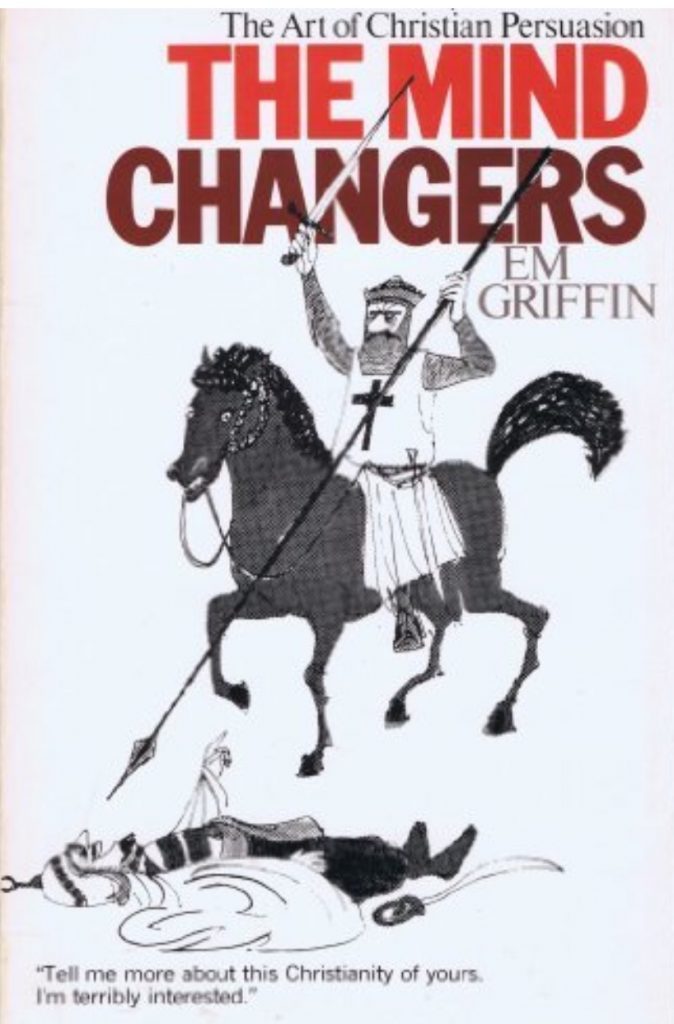
This post continues a thread started in my previous post. If you have not read it you should do so to provide context for this post. Click HERE.
This post is directed at the question in my first post “…to what extent does the prevailing cultural ethos of tolerance, acceptance, individual rights, etc restrain our engagement with unbelievers? “ Those who are familiar with my writings will recognize the subject of disenchantment (hopefully not with regret). If you are not familiar with the subject as I have engaged it and are a bit masochistic, you can read my posts HERE.
To begin with my conclusion, Our disenchanted age is a highly significant factor related to, both, the unsuccessfulness of evangelistic efforts, and the methods adopted to deliver good news. It has been, and continues to be my contention: “Living in a disenchanted age is the most significant challenge we face in seeking a relationship with God”.
To begin the discussion, some basics about disenchantment, particularly life in our disenchanted age is helpful.
The default mode for the disenchanted age is reliance on human ability/reason and scientific laws as an ultimate source for answers to the problems of modernity. Utility, efficiency and production are our preimemmant tools to achieve full potential as human beings. Inherently, disenchantment rejects the transcendent. Mystery, fantasy, spirituality, faith, divinity, magic, art, namely, enchantment, is rendered irrelevant. our existence in a disenchanted age is reduced to one dimension, removing depth and meaning and distorting the purpose of our lives. As Beck describes, “When creation is stripped of its holy, sacred and enchanted character …it becomes–material. Raw, disenchanted material. Inert stuff. Piles of particles.”
In my first post, I questioned whether our problems related to Sharing Good News were attributable to either, of what I see, as opposing camps in the discussion.
Are progressive Christians the problem? “The progressive impulse toward tolerance and inclusion, along with a post-modern stance on truth, leaves progressive Christians in an awkward position in regards to evangelism, sharing the gospel with non-believers. Evangelism smacks of judgementalism, I’m right and you are wrong. Worse, evangelism can tend toward colonialism, the history of white missionaries being sent to save dark pagan savages.” (Beck)
Could uncompromising, evangelism zealots be the problem? “ Compelled by an urgency of doom and gloom… turn or burn.. fear, fueled by “you can”t go to heaven alone”; sharing the Gospel becomes an ultimatum to the human will. Choose Christ and live or deny Christ and go to hell.
My intuitive response to those questions is to develop thoughtful answers and suggest solutions to each problem. After some pondering, It occurs to me that the only thing that path would accomplish would be to clarify in each of the parties minds’ how right they are and how wrong the other is. Since we agree(?) we are all for Sharing Good News, it would seem to be unproductive to further solidify our disagreements. Therefore, why not recognize each position reflects honest, but real differences and are equally yoked in their ineffectiveness in Sharing Good News. I am suggesting we (both parties) share another common bond, namely disenchantment.
Starting with progressive Christians, which I most closely identify with. Progressive Christian are highly susceptible to the impact of disenchantment. The preeminent values of a disenchanted culture, …individualism, …tolerance, …authenticity, …justice… fairness, et al, comprise the lens through which we read scripture and interpret how to live out our lives as Christ followers. To the extent that evangelism is perceived to require us to violate those deeply held values, we will resist. That resistance will not be overcome by force.
Speaking to evangelism zealots, which is a part of my faith heritage. I believe disenchantment is an equal opportunity disease. Evangelism zealots are not exempt from our disenchanted culture. From their disenchanted perspective, their preeminent values are …truth, …rightness, …justice,..loyalty,…obedience, et al. Similarly, these comprise the lens through which they read the Bible and interpret how to live out their lives as Christ followers. Resistance toany violation of those values is uncompromising. Additionally, their enthusiasm for evangelism will grow or wane to the extent that their perception of evangelism resonates with those values.
For each of the parties, their deeply held values come as a result of this disenchanted age. Ironically, both attribute their values to scripture. We live In the reality of human progress and the optimism of an unbounded future, all attributable to human ingenuity and science. Each party, in their own way, embrace that reality and support its achievement. I suggest that serious engagement on that point, could lead deeper understanding and has potential for transformative change.
On the other hand, there is a transcendent reality. An awareness that we exist and recognize our need for meaning and purpose which is unfulfilled in a disenchanted reality. This is our common need which can only be fulfilled in the transcendent.
As usual, I don’t have answers, but I hope the issue has been reframed in a way that will generayte serious self-examination and meaningful conversations.
Disclaimer: I fully realize I have stepped into deep waters. I do wish to quibble over minute details. I have written with my usual personal limitations. I am painting with a broad brush and I hopeful others will help fill in the gaps.
I was wrong once before.